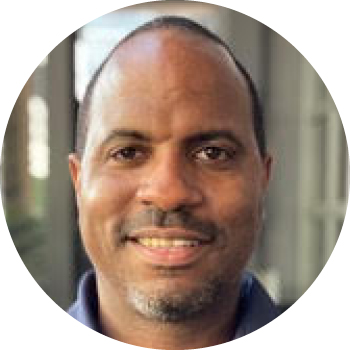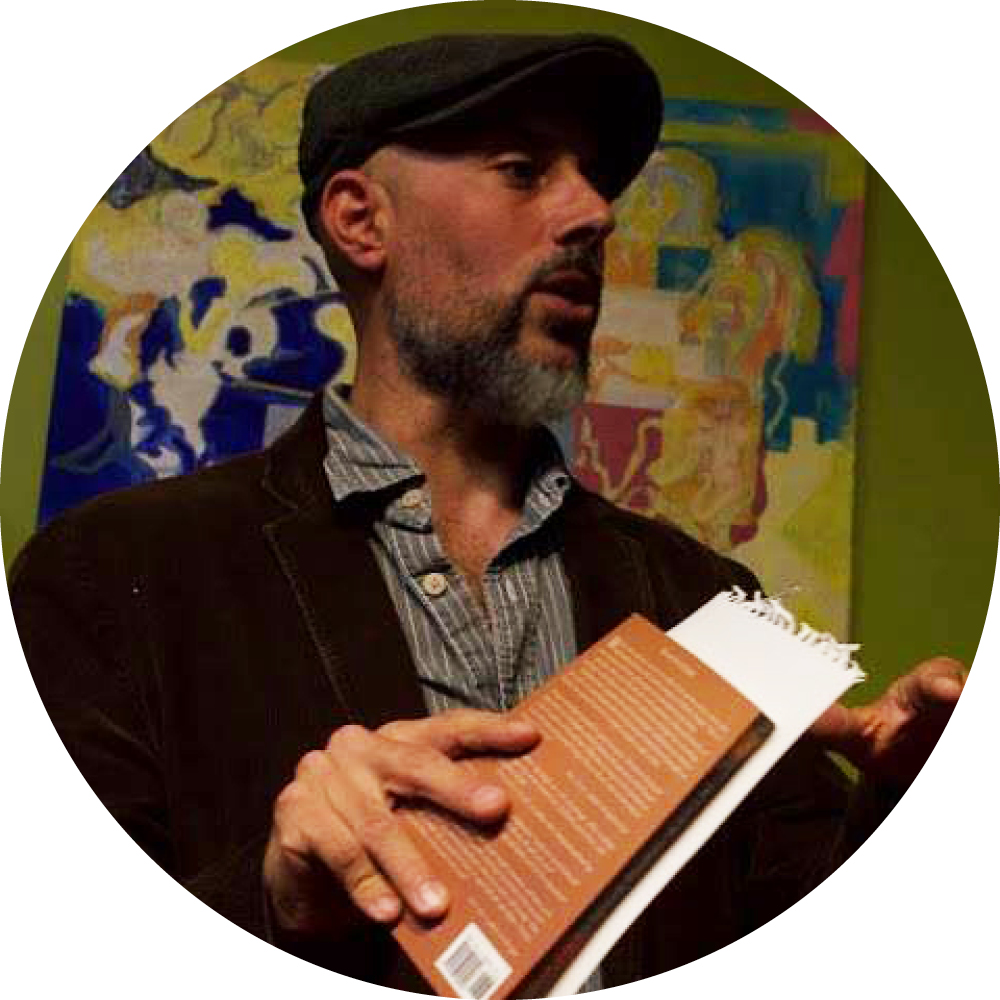Stakes is High:
Black Men’s College Endeavors
and Educational Desires
By Derrick R. Brooms
When I first read about Black students’ experiences, I was in my second year of college and trying to make sense of my own educational journey. My first year and a half of college I wrestled with learning from my experiences of growing up in hypersegregated and ghettoized communities on the South Side of Chicago and reflecting on aspects of my life and my educational experiences, including my preparation for and transition to college.
I struggled during that first year and a half of college primarily due to financial barriers and, at the same time, I experienced culture shock, I faced racialized stereotypes and profiling, and I was made quite of aware of my unbelonging on campus – in both academic and social spaces. I was a first-generation, no income student. I was questioned and detained while on campus on four separate occasions by campus police, both because “I didn’t look like a university student” and because “I fit the description” (young Black male). In too many instances, I was always already out of place.
Maybe I internalized these ideas from the micromessages and questions that I received – from faculty, staff, and students alike. Maybe that was the point, anyway.
Still, school had been my refuge – and college had to be, too. I knew and saw up close the dangers of ghettoized communities, structural racism and neglect, and state-sanctioned violence – even as I didn’t have this language at the time. My primary focus was on making it through college and, as I considered the ever-widening gulf between continuing to pursue a college degree or returning to my home community, I understood quite clearly: stakes is high.
My primary focus was on making it through college… until I took a course with Dr. Edgar Epps during the latter half of my second year. Several of the readings in this course, along with many of the discussions, profoundly affected me and my understanding about urban education. I found times to meet with Dr. Epps to ask questions about our readings and the course. I was both angry and inspired. I switched my major to African and African American Studies, I switched my academic advisor, I searched through my papers to find a reading list that was gifted to me by Dr. Zada Johnson, and I applied for and was accepted into the Summer Research Opportunities Program (SROP). Dr. Epps agreed to be my faculty research mentor.
My SROP research study focused on Black students’ experiences at predominantly white institutions. I read almost all the literature that Dr. Epps suggested, I talked informally with Black students about their college experiences, and I developed an interview protocol because I was interested in learning about and from other people’s experiences. I wrote a 20+ page research paper, which primarily surveyed relevant literature to complete my requirements for the SROP Program. The combined impact of taking Dr. Epps’ class and his decision to provide me with research support for the SROP Program were transformative.
Black youth have a deep capacity for making sense of the everyday world in essential and nuanced ways, which allows them to offer critical insights into their/our life worlds. I see Black youth as budding theorists, cultural critics, and social commentators who can help usher change and understanding and who can help bridge knowledge and experiential gaps between intraracial and interracial peers, adults, and elders.
During my last two years of college, I took several other classes that Dr. Epps taught – including a couple graduate level courses. He wrote me recommendations for graduate school. Mainly due to Dr. Epps’ mentorship, care, support, and guidance, but also because of his effectiveness as an educator, I think about him often in my current work and professional endeavors.
I begin with the personal because my teaching, research, service, and community-based work all are deeply personal. The personal not only shaped my own educational trajectories but it also continues to inform my current and ongoing professional activities and communal commitments. My research primarily focuses on Black boys’ and men’s lived experiences and their pathways to and through college. I see their lives as connected to my own and my connections with them continues to inspire my work and efforts.
Black youth have a deep capacity for making sense of the everyday world in essential and nuanced ways, which allows them to offer critical insights into their/our lifeworlds. I see Black youth as budding theorists, cultural critics, and social commentators who can help usher change and understanding and who can help bridge knowledge and experiential gaps between intraracial and interracial peers, adults, and elders. As I engage Black boys and men in research-based interviews, I do so with these ideas in mind and I see these conversations as pivotal opportunities for me to learn about and from them.
For major portions of the past eight years, I have facilitated two main research projects, both of which explore Black boys’ and men’s educational experiences. I am astounded by the conditions that Black boys and men face in their educational journeys and by the neglect and disregard they experience in their college years. I also am inspired, constantly, by their efforts and educational desires.
As I reflect on these two warring realities, the myriad forms of antiblackness they experience in their lives and education and their drive and determination to pursue their educational and personal goals, I recognize that their lives and interiorities require greater attention and support. Too often, the focus is on either what they do not accomplish or they are flatlined into a dominant narrative that claims they don’t care about education. They are accosted by what Chimamanda Ngozi Adichie discusses as “the danger of a single story.” Adichie informs us that the single story is rooted in power and in order to create a single story, one must “show a people as one thing, as only one thing, over and over again, and that is what they become.”
Sometimes the achievements of a few are exceptionalized and used against those who perform less well. There remains a gulf in understanding who Black boys and men are – and even less attention is given to what they can achieve educationally and intellectually.
How many times has our potential been anonymous?
– Kendrick Lamar
As Ralph Ellison contended, we are invisible, understand, simply because people refuse to see us.
How many times has our potential been anonymous?
– Kendrick Lamar
I remain sensitive in my writing and analyses to ensure that Black men speak for themselves – my role, as Toni Morrison calls us, is writing in such a way that I put things together. As mentioned, I believe there are valuable lessons and insights to be learned from people as they endure, navigate, and negotiate the various conditions and institutions that impact their lives.
To appreciate their experiences and meaning making, I continuously center Black boys’ and men’s words, narratives, and sensemaking in my writing.
I invoke “Stakes Is High” as the title of this essay, as well as the main title of my recently published book, Stakes Is High: Trials, Lessons, and Triumphs of Young Black Men’s Educational Journeys, to pay homage to the hip hop group De La Soul’s fourth studio album of the same name. Their album has stayed with me for a while along with the album-titled track in which they engage with the formidable question, “What do we mean to the world?”
In a more robust sense, the title and question also serve as umbrella frames for the broader corpus of my research and work with Black boys and men and the urgency required to recognize and redress a number of issues that they endure – that seem to be happening and in motion and always already on the horizon.
The stakes for Black boys and men remain paradoxical and complex. On the one hand, it is precisely because Black boys routinely are misperceived, misunderstood, and underappreciated across U.S. society that they can (and will continue to) experience epistemic violence in school – from personal interactions and engagements to (mis)treatment and being dismissed and denied, especially for those who do not harness high athletic abilities or desires. The educational record makes clear that too many Black boys and men are disdained and denigrated in educational spaces across the educational continuum, which allows for them to face overexposure to suspension, expulsion, and multiple forms of policing.
At the same time, given the prevalence of the educational gospel – the belief that schooling attainment can solve social, economic, and civic problems – Black boys and men are pushed to pursue higher levels of education while simultaneously being blocked from access to educational opportunities and resources.
“What do we mean to the world?”
For the reasons briefly noted here, along with research literature and personal narratives shared elsewhere, Black boys and men too often are placed at odds with educational success. In fact, as several men shared in my conversations with them, they routinely are assaulted by anti-Black messages that declare an expectation of Black men’s failure.
As examples, in culling from some of my interview data and published research work, Black men that I have talked with have shared:
“I’m not going to say that she don’t like Black folks because that’s too extreme. She had a bad experience with a Black male in her class before and that sorta put a wall up . . . She was a White teacher, she told me, ‘You know Jordan, many African Americans don’t pass my class.’” – Jordan
“That 60 percent [of my college dissatisfaction] comes from professors who don’t care about students and the lack of care from the governing bodies of universities.” – Fred
“It almost feel like they were looking for you to fail.” – Jamie
“I had one teacher tell me, ‘You’re not ready for college; you should go back to [my hometown].’ I was like, ‘Wow, this is bad!’ He didn’t say that you should go to community college, he said you should go home.” – Tariq
“I mean… it’s real hard. It’s not that many Black males here. You just feel like a minority; even though you’re a minority, you feel like you’re really, really, really a minority.” – Saleem
“…most of these people ain’t like me and they don’t care about me. You look around and it’s probably about two percent of us [Black males] on campus and that’s low. When you somebody in that two percent people treat you like it. That’s why I’m trying to hurry up and leave. I just want my stuff so I can leave.” – Charles
“It’s not too many of us that graduate… We’re expected to fail… But… being a Black male… we gotta work three times as hard. But I knew that too before I came (to college).” – Jamie
Across these narratives and others, Black men recount the various ways that they are accosted by and must navigate anti-Black racial logics that are predicated on their failure and nothingness.
Some of the men also talked about how if they left college then “nobody” would miss them, they talked about the critical importance of their Black male bonding and friendships, and they talked about their commitment to their own education and the collective efforts – to resist stereotypes, aspire to excellence, set their own standards, achieve in spite of, and critical experiences and relationships that brought them joy and satisfaction and kept them motivated both personally and educationally.
At the same time, given the prevalence of the educational gospel – the belief that schooling attainment can solve social, economic, and civic problems – Black boys and men are pushed to pursue higher levels of education while simultaneously being blocked from access to educational opportunities and resources.
In one of my conversations with Chris (pseudonym), whose experiences are included in the most recent book project, he shared a particularly challenging interpersonal experience where he felt both aggrieved and dismissed because of the neighborhood he was in. As he reflected on a specific experience he had with a public transit employee, he offered:
It just stood out to me and made me realize that there were going to be people that look like me trying to stop me from moving forward — or just not to think that I could be something different than what’s in my environment. It was frustrating. That was one of those events where I realized that this is what people might think, and they didn’t even know me. It highlighted to me that Black males are seen as statistics and bound by our social conditions. – Chris
Chris’s experience strikes a chord and his sensemaking is profound. Because Black men are “seen as statistics and bound by our social conditions” then they may be seized by an expectation to mediocrity.
I am reminded of James Baldwin’s incising precision in his essay, “My Dungeon Shook” (1963), as he was writing to his nephew:
“You were born where you were born and faced the future that you faced because you were black and for no other reason. The limits of your ambition were, thus, expected to be set forever. You were born into a society which spelled out with brutal clarity, and in as many ways as possible, that you were a worthless human being. You were not expected to aspire to excellence: you were expected to make peace with mediocrity.”
Considering these realities, perhaps it is no wonder that some Black boys and men may internalize some of the pressures, denigrations, and negative messaging they endure. Any and all of which make the support they receive critical to their aspirations, efforts, and outcomes.
As I reflect on my conversations and work with Black men, particularly in their pathways to and through college, the question “What do we mean to the world?” continues to be prominent in our discussions and reflections. And, this question lingers as they navigate various social institutions, as they make sense of their efforts, and as they envision their future selves. And, in making sense of these realities, I am reminded of Audre Lorde’s contention: we must define ourselves for ourselves.
For those who are interested in supporting Black men, several formative takeaways include their radical hope, which Dr. Carl Grant contends “is in the DNA of Black people,” and the ways that they create and pursue their own stories. What can we learn collectively from Black men as they continue to pursue their educational goals against so many odds that are stacked against them, clearly reflecting stakes is high? Also, what can we learn from the support and care they receive from their families, communities, and educators as well as through their bonding relationships with each other that keep them on their paths and help them accomplish their goals?
As demonstrated in multiple facets of my research and work, Black men are quite clear in their educational desires. In various ways, they assert that they are committed to pursuing their aspirations and accomplishing their goals – to honor commitments made to their families, to honor the family and communal support they have received along the way, and to create their own stories or perhaps even to continue or start their legacies.
You were born where you were born and faced the future that you faced because you were black and for no other reason. The limits of your ambition were, thus, expected to be set forever. You were born into a society which spelled out with brutal clarity, and in as many ways as possible, that you were a worthless human being. You were not expected to aspire to excellence: you were expected to make peace with mediocrity.
– James Baldwin
Based on some of my learning from and with Black men, I offer three points for educators, practitioners, and education stakeholders to incorporate in their praxis with Black men. The goal here is not to be exhaustive but rather is intended to identify what can work well in supporting Black men.
1. Engage with Black men through their promise. Critically important in working with and supporting Black men in their educational endeavors is redressing the ways that they are un/seen and imagined. Educators and stakeholders need to engage Black men through their promise and not their projections – or through the problems that impact their lives. Black men are quite aware of the stereotypes, labels, and misperceptions that constantly accost them in educational settings. Focusing on their promise means seeing Black men for who they are and what they are capable of, even as they continue to develop their skills, abilities, and knowledge. This focus also means that “failures” are not fatal or overly deterministic. In expecting Black men to succeed and accomplish their goals requires that people engage, support, and care for them quite differently.
2. Care about Black men authentically and through actions. There are too many people who engage in performative care related to educating and supporting Black men. Given the realities that Black men continue to face – within wider society, across social institutions, and in higher education specifically – authentic care and putting that care into action is critical. What I find most illuminating in my work is the incongruence between the proclamations of caring about Black men and the simultaneous lack of knowledge about how Black men are doing on/at specific campuses. What we need is care that is grounded in Black men’s lives, that is sensitive to the challenges they face as well as their promise, and that is embodied and acted on in such a way that helps enhance their educational experiences and outcomes.
3. Put supports in place that increase opportunities for Black men’s collegiate success. Student success in higher education is not simply an individual endeavor. There is a great need to continue to strategize the supports that can be established, strengthened, and sustained that contribute to Black men’s successes in college. For instance, research continues to demonstrate that relationships are critical to Black men’s college experiences – among peers, staff, and faculty alike. In what ways can colleges and universities help formalize some of these connections and assist collegiate Black men in sustaining relationships throughout their college years – and perhaps beyond? Additionally, resources and opportunities that contribute to developing career pathways can be informative while on- and off-campus opportunities can enhance Black men’s college experiences and post-college options. Also, developing on-campus and community partnerships to create a web of support for Black men across multiple facets of their lives and experiences can be meaningful as well.
What I have shared in this essay is intended to shed light on some of the ways that Black men experience and navigate their college years. Even as I offer these three points, it is critical that any such efforts are done in collaboration with collegiate Black men. If we are serious about educating and empowering Black men, then this commitment should be reflected in every facet of the work we do with them. This type of commitment demands that we move beyond the rhetoric. Given that stakes is high, Black men’s educational success must be prioritized in actions, institutional strategies and policies, and collective efforts. To fail to do so signifies quite clearly Black men’s unmattering and unworthiness.

Re-sources
Re-Imagining Education

Empowering educators to take a deeper look at the stories told in our schools and to re-imagine them in transformative and
nurturing learning spaces.
Learning Opportunities

Classes, workshops, and lectures that help to empower people to re-imagine who they are and their place in the world.
Get Involved

Help the Chicago Wisdom Project realize its mission to re-imagine education through holistic programming that transforms individual, community and world through creative expression.
